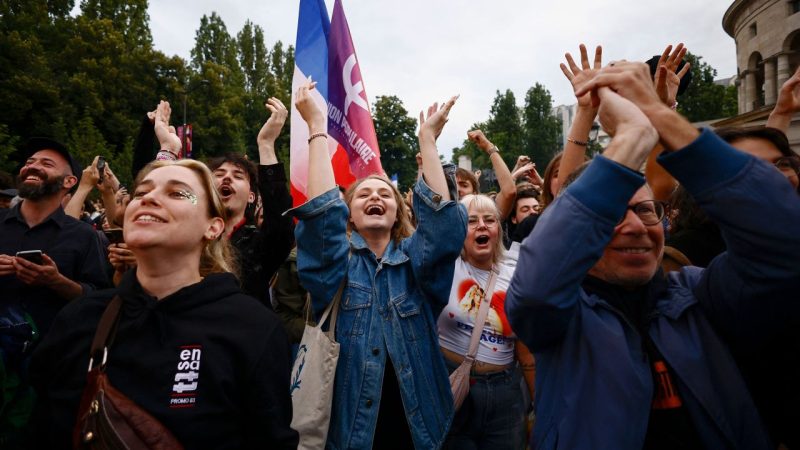The French Elections are a critical moment in the political landscape of France, influencing not only the country’s future but also its role on the global stage. This pivotal event garners significant attention as candidates present their visions, policies, and promises to the electorate. As the nation gears up for the next election, here are the top 10 candidates shaping the future of France.
Emmanuel Macron: The Incumbent President
Emmanuel Macron, the current President of France, is seeking re-election. As the leader of La République En Marche!, Macron has focused on economic reforms, digital transformation, and strengthening the European Union. His presidency has been marked by both achievements and controversies, but he remains a formidable candidate in the French Elections.
Marine Le Pen: The Far-Right Contender
Marine Le Pen, the leader of the National Rally (Rassemblement National), is a prominent figure in the French Elections. Known for her strong stance on immigration and nationalism, Le Pen has consistently pushed for policies that prioritize French identity and sovereignty. Her campaign focuses on security, immigration control, and economic protectionism.
Jean-Luc Mélenchon: The Left-Wing Firebrand
Jean-Luc Mélenchon, the leader of La France Insoumise, represents the far-left in the French Elections. His platform includes wealth redistribution, environmental protection, and social justice. Mélenchon’s charismatic and combative style resonates with many voters who are disillusioned with traditional politics.
Valérie Pécresse: The Centre-Right Challenger
Valérie Pécresse, a former Minister and the President of the Île-de-France region, is a significant candidate in the French Elections. As a representative of the centre-right Republicans, Pécresse advocates for economic liberalism, security, and educational reforms. Her campaign seeks to appeal to both conservative and moderate voters.
Yannick Jadot: The Green Candidate
Yannick Jadot, the candidate for Europe Écologie Les Verts (EELV), is focusing on environmental issues in the French Elections. His platform emphasizes renewable energy, sustainable development, and combating climate change. Jadot aims to attract voters concerned with environmental sustainability and green policies.
Anne Hidalgo: The Socialist Hope
Anne Hidalgo, the Mayor of Paris, is the Socialist Party’s candidate in the French Elections. Her campaign focuses on social justice, affordable housing, and environmental initiatives. Hidalgo’s leadership in Paris has given her significant visibility, making her a notable contender in the national political arena.
Éric Zemmour: The Controversial Newcomer
Éric Zemmour, a journalist and political commentator, has entered the French Elections as a far-right candidate. Known for his provocative statements and nationalist views, Zemmour’s campaign centers on immigration control, national identity, and a return to traditional values. His entry has added a new dynamic to the election race.
Xavier Bertrand: The Experienced Politician
Xavier Bertrand, the President of the Hauts-de-France region, is another centre-right candidate in the French Elections. With a background in various ministerial roles, Bertrand focuses on economic growth, job creation, and security. His experience and pragmatic approach appeal to many voters seeking stability and competence.
Fabien Roussel: The Communist Candidate
Fabien Roussel, the leader of the French Communist Party, is running in the French Elections with a platform centered on workers’ rights, social equality, and public services. Roussel advocates for a significant shift in economic policies, aiming to reduce inequality and increase state intervention in the economy.
Arnaud Montebourg: The Independent Voice
Arnaud Montebourg, a former Minister of the Economy, is running as an independent candidate in the French Elections. His campaign focuses on economic patriotism, industrial revival, and social justice. Montebourg seeks to position himself as an alternative to the traditional party candidates, appealing to voters across the political spectrum.
Conclusion
The French Elections are shaping up to be a highly competitive and pivotal event, with a diverse range of candidates vying for the presidency. From the incumbent Emmanuel Macron to the far-right Marine Le Pen, the left-wing Jean-Luc Mélenchon, and the green candidate Yannick Jadot, each candidate brings unique perspectives and policies to the table. The outcome of the French Elections will undoubtedly influence the future direction of France, both domestically and internationally.
FAQs
Q1. When are the next elections scheduled?
The next elections are scheduled to take place in 2027. The specific dates for the presidential and legislative elections will be announced closer to the election year.
Q2. What are the main issues in the elections?
The main issues typically include the economy, immigration, security, social justice, and environmental sustainability. Each candidate presents their solutions and policies addressing these concerns.
Q3. How is the President of France elected?
The President of France is elected through a two-round system. If no candidate receives an absolute majority in the first round, a runoff is held between the top two candidates, and the one with the most votes in the second round wins.
Q4. What role does the European Union play in the elections?
The European Union is a significant factor, with candidates often discussing their policies on EU membership, integration, and reforms. France’s role in the EU and its future relationship with other member states are key topics during the election campaigns.
Q5. How can French citizens participate in the elections?
French citizens participate by registering to vote and casting their ballots on election day. They can vote in person at polling stations or by mail if they meet the requirements for absentee voting.
Also read: LADS HOLIDAY PLANNING: 10 STEPS TO GUARANTEE AN UNFORGETTABLE EXPERIENCE









